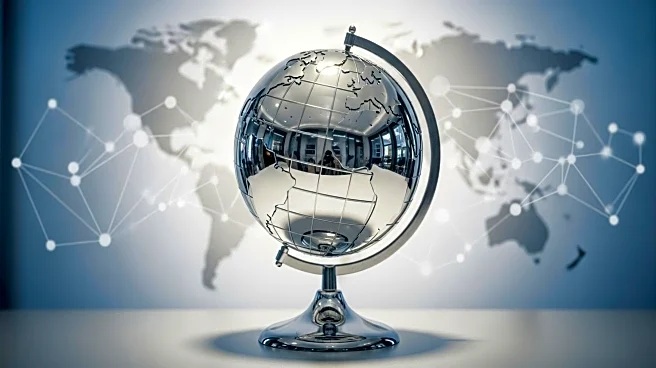What's Happening?
The International Monetary Fund (IMF) has released a new report indicating that global economic growth is expected to slow down this year and next. The report attributes this slowdown to ongoing trade
tensions and supply chain disruptions, particularly between the United States and China. President Trump has recently threatened to increase tariffs on Chinese imports by 100 percent, exacerbating these tensions. Despite these challenges, the global economy is slightly stronger than earlier predictions due to delayed tariffs and businesses stockpiling goods.
Why It's Important?
The projected slowdown in global economic growth has significant implications for international trade and economic stability. The uncertainty surrounding trade policies, especially between major economies like the U.S. and China, could lead to increased costs for businesses and consumers. This situation may affect global supply chains, investment decisions, and economic planning. Countries reliant on exports may face challenges in maintaining growth, while protectionist measures could lead to retaliatory actions, further complicating international relations.
What's Next?
The IMF's report suggests that stakeholders should prepare for continued volatility in trade relations and economic conditions. Businesses may need to reassess their supply chain strategies and explore alternative markets to mitigate risks. Policymakers will likely face pressure to negotiate trade agreements that reduce uncertainty and foster economic stability. The potential for a federal government shutdown in the U.S. adds another layer of complexity, which could impact economic performance and policy decisions.











